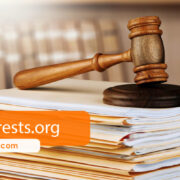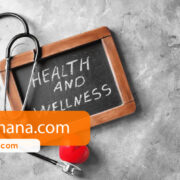What is the first thing that comes to your mind when you think of your home? Probably, a place that provides you and your family a feeling of warmth and comfort, right? However, sometimes slight negligence might turn your safe place hazardous for your kids, leaving you and the entire family in lifelong guilt. According to recent statistics by the National Home Security Alliance, approximately 18,000 people become the victim of in-home hazards each year in the US alone. Whereas, National Fire Protection Association reported that home fires cause approximately75% of deaths each year. In contrast, 73% of people suffer from fire injuries due to the same reason.
Perhaps, many of these incidents are preventable. Therefore, you must look for any significant risks and threats that may be present in your safe place to take security measures beforehand. In this article, we have shared some of the common safety hazards and steps you can take to minimize the risks:
Table of Contents
LOOK OUT FOR MOLDS
Molds are microorganisms. They usually grow in warm and humid weather. Although molds that grow outside can benefit the environment by speeding up the process of natural decomposition, those inside your home can cause serious health issues. Early detection of indoor molds is pertinent to prevent long-term damage since they grow rapidly.
Some common health issues caused by molds include irritation, cough, breathing problems, sneezing, allergies, etc. These molds generally develop in areas with high humidity, such as the kitchen and bathroom. Did you know? People in Orlando experience high or moderate humidity throughout the year. So there is a greater likelihood of molds and pathogens’ growth in its areas.
Are you a resident in Orlando and don’t know how to inspect and kill molds? In that case, feel free to visit https://www.removemoldorlando.com to get a professional guide and help to prevent your home from mold.
BE AWARE OF POISONING HAZARDS
Do you know some of your household products, such as medicines, washing powders, chemicals, etc., contain a life-threatening poison that may affect you or your loved ones? Staying mindful of such household items and taking measures can give you protection from deadly accidents. Practice these steps to reduce the risks of poisoning hazards in your home:
- Store drugs and medicines at a safe place and out of the reach of children or people who are allergic to them
- Lock away cleaning supplies and chemicals
- Try to store petrol in proper containers, and keep them in a well-ventilated place
- Install and frequently maintain carbon monoxide detector to detect any leakage
REDUCE THE RISK OF FIRE
According to the US Fire Administration (USFA) report, there were around 1,291,500 fire cases in 2019. Some common residential cases of fires were electrical malfunction, cooking, heating, smoking, or minor negligence. Fire accidents can be a serious threat not only to your property but also to your loved ones. However, the good thing is that these incidents are preventable.
Keep in mind the following measures to keep your home safe from fire hazards:
- Do not ever leave cooking unattended
- Install and maintain fire extinguisher in the immediate vicinity of your kitchen
- Don’t forget to unplug wires and appliances once used
- Install smoke alarms in each room
CHECK FOR WATER LEAKAGE
Water leakage is one of the prominent causes of falls and injuries at home. Sometimes leaving a wet floor can even lead to spinal injuries. Moreover, if a water leakage reaches any electrical wire, it may cause a short circuit in your home. Hence, we recommend you to follow the below tips to prevent water leakage at home:
- Make sure to clean the gutter regularly
- Check and maintain the plumbing lines at your home
- Keep an eye on any broken or missing caulk
- Don’t forget to pay attention to the roof to look for any broken, missing, or loose shingles
PREVENT SUFFOCATION AT HOME
Is your home appropriately ventilated? If not, there is a high possibility that you or your loved ones may suffer from severe health problems. A well-ventilated space is pertinent to improve your indoor air quality. This exchange of air is important to reduce the level of contaminants inside your home and can save you from eczema, cancer, and nervous system problems. Observe the following steps to get your home ventilated as much as possible:
- Open the windows and curtains to let in the fresh air
- Install exhaust fans in the bathroom and kitchen to improve the air quality
- Invest in indoor plants for fresh airflow
KEEP SHARP OBJECTS AT A SAFE PLACE
There is no denying that you might have different sharp household objects, such as knives, scissors, blades, etc. You might not even realize, but these small items can cause some serious accidents. Make sure to keep them at places that your children may not reach easily. You can save yourself and your kids from cuts and wounds by taking these precautions:
- Store all your kitchen supplies such as peeler, knives, cutter, forks, etc. in a locked drawer
- Keep razors and other pointed tools covered and store them in a safe cabinet
- Make sure to cover your bins with lids that contain used food cans
HAVE AN EMERGENCY PLAN
Let’s face it; no matter how much you try to eradicate the risks, there’s always room for the slightest uncertainty. You might experience some unexpected incidents anytime, so having a backup emergency plan is a must to help you get out of the crisis efficiently. However, some of the important pointers include:
- Make sure to educate and keep your family members aware of the necessary steps they should take during an emergency
- Keep first aid kit and inhalers at home to get the immediate treatment
- List down the emergency numbers to get prompt help
- Don’t forget to check the maintenance of alarm systems inside your house
WRAPPING UP
Maintaining home safety and health is essential to prevent you and your family from any diseases or injuries. Since home security is essential for all, each family member must participate to ensure their wellbeing. Pay attention to the details mentioned above to prevent the occurrence of any unexpected or life-threatening accidents.









Comments